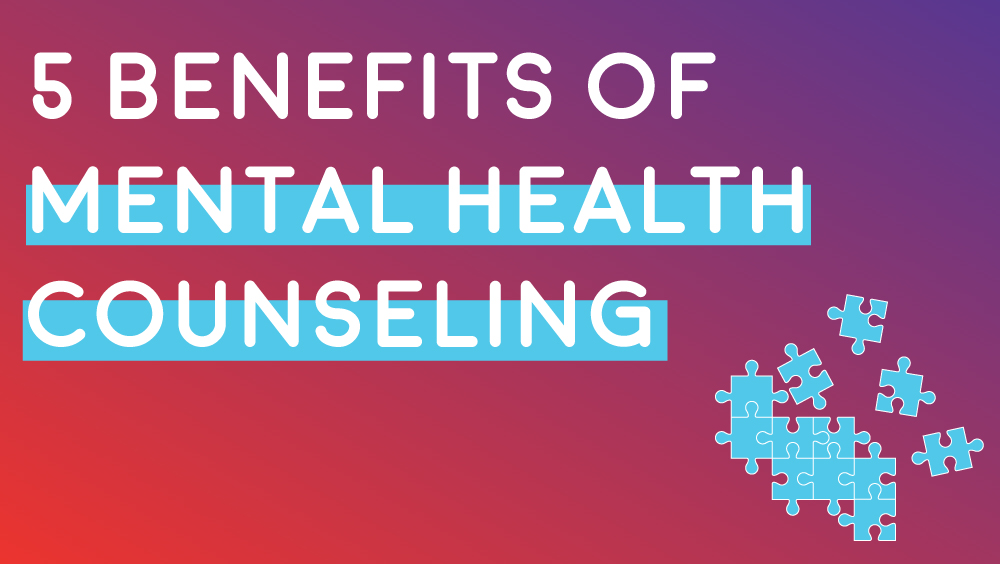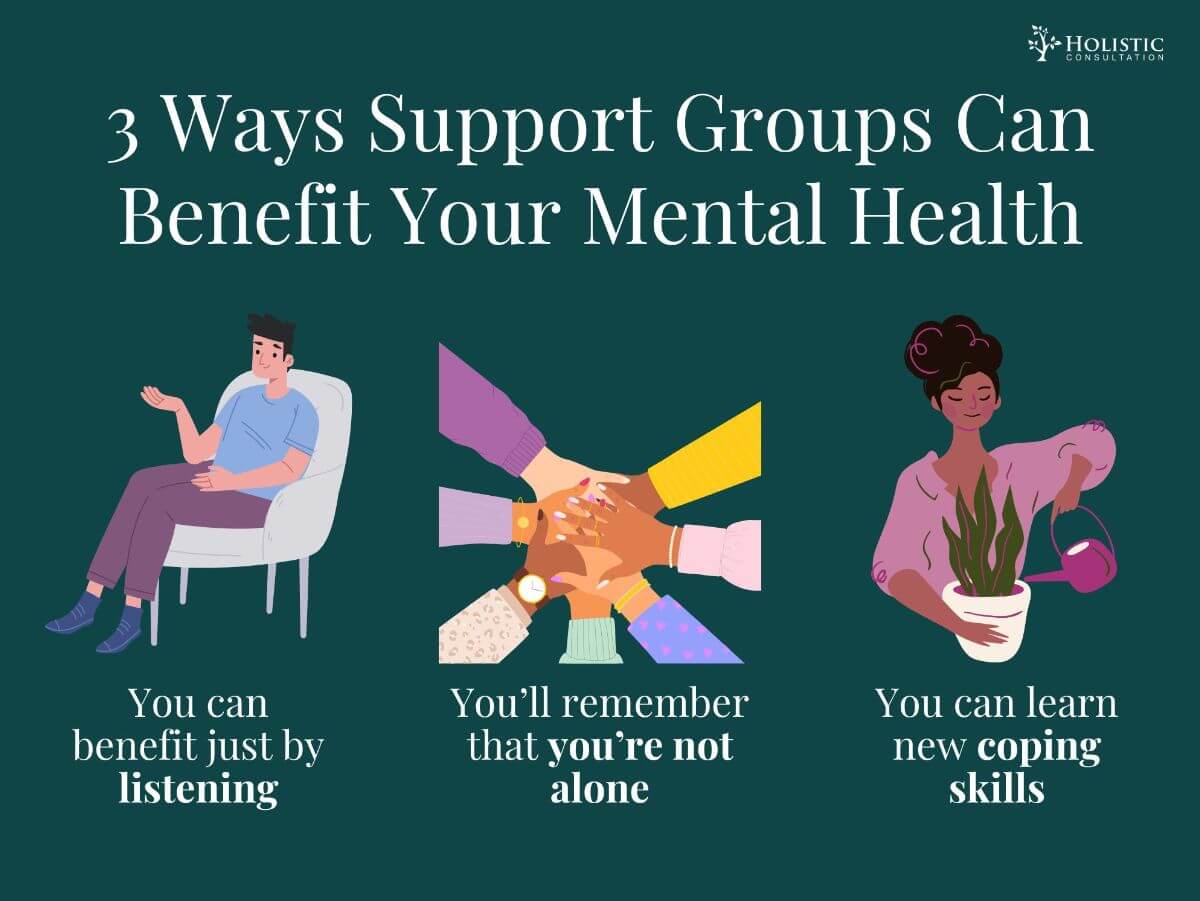The Best Strategy To Use For Mental Health Counseling
The Best Strategy To Use For Mental Health Counseling
Blog Article
Getting The Mental Health Counseling To Work
Table of ContentsThe Ultimate Guide To Mental Health CounselingMental Health Counseling Things To Know Before You Get ThisMental Health Counseling - An OverviewNot known Factual Statements About Mental Health Counseling The Facts About Mental Health Counseling Uncovered
With treatment, you can acquire insight right into your very own patterns of habits and communication, which can lead to even more meeting and pleasing relationships with buddies, household, and charming partners. What we assume, we materialize. If you're taken in with negative feelings and negative ideas that are hindering your life, therapy can aid., or there are various other unfavorable means you behave. Therapy can assist you change those habits that are having an unfavorable effect on your globe and relationships.

The significance of therapy surpasses your psychological health and wellness. Obtaining treatment to address certain aspects of your life can assist you be much more effective in other locations, consisting of job. Some research has also shown that there's a straight connection between looking for mental health aid and a decrease in missed job.

The Best Strategy To Use For Mental Health Counseling
You can see a therapist when things are going really well in your life, or when you're concerning to experience a big life shift." Talkspace therapist Kate Rosenblatt, MA, LPC, LMHC. There are even a lot more advantages of therapy than just the ones we have talked about. Treatment can instruct you exactly how to manage separation, handle grief, or develop relationships (enchanting or those with family or pals) in a healthy means.
For the function of the present research, perceived benefits and obstacles to mental health and wellness help-seeking are being explored. Previous research study located that perceived obstacles have a considerable result on university student' health and wellness habits options (Von Ah, Ebert, Ngamvitroj, Park & Kang, 2003). Regarded benefits and barriers to help-seeking were particularly selected because of their impact on decision-making and inevitably action (Glanz, Rimer, & Su, 2005).
The existing research study seeks to take a look at whether or not preconception serves as a barrier to treatment amongst college trainees. Amongst these were: (1) choosing to deal with mental wellness troubles themselves, (2) not having enough time to take part in treatment, (3) concerns concerning whether mental wellness treatment is reliable in remediating problems, (4) an idea that tension is typical or the issue will certainly get far better without treatment, (5) lack of cash, and (6) stress about what others would assume if they found out about treatment engagement.
(2006) reported comparable variables as obstacles to looking for treatment and likewise found that a skepticism of service providers might hamper students from looking for help. Personnel in university psychological university hospital might be viewed as unfriendly, and long wait times for services may be "off-putting" for students. Factors facilitating a lot more positive perspectives are typically at the contrary pole of those aspects identified as obstacles.
The Ultimate Guide To Mental Health Counseling
One in three (34.6%) reported surviving university and one in 4 (23.3%) reported coping with moms and dads. Virtually half of trainees were associated with university companies and 1 in 10 reported remaining in a society or sorority. Even more than one-third of students (38.1%) reported that they had a family members member or buddy with a detected psychological health disorder.

See This Report on Mental Health Counseling
Univariate F-tests determined particular subscale items that dramatically differed. Women were much less most likely than men to regard individuals who go to counseling as emotionally weak, individuals who go to counseling as crazy, to feel that people with psychological illness need to deal with problems on their very own, that people that most likely to counseling as unable to fix issues, that people that most likely to therapy slouch, and to feel that people that most likely to counseling are different from regular people in an adverse way.
In a similar way, use this link research results revealed that women were substantially much less most likely than males to hold stigma-related mindsets. This is constant with previous research which additionally located that males hold greater levels of regarded stigma than women (Chandra & Minkovitz, 2006). Based upon study findings, it is apparent that men may be less likely than females to seek treatment as a result of low regarded barriers as well as high stigma-related mindsets.
The 9-Minute Rule for Mental Health Counseling
On top of that, university wellness specialists might provide curricula targeting men with information on the advantages of psychological health therapy and the value of seeking help when required. All approaches need to be examined with future research study to identify the result on college students, particularly males. As opposed to basic populace studies which expose that females are most likely to choose mental wellness solutions compared to males (Haunstein et al., 2006; Mackenzie, Gekoski, & Knox, 2006), today research found no considerable differences in the number of regarded obstacles to help-seeking behaviors based upon sex.
Researchers hypothesize that this is mainly due to traditional social standards and gender functions that defined men based on strength read and lack of emotional expression (Addis & Mahalik, 2003; Ang, Lim, Tan, & Yau, 2004; Mojtabai, 2007). On the whole, there have been blended outcomes amongst the university student population regarding sex differences (Rosenthal & Wilson, 2008). This finding was unanticipated and might highlight that those that had actually received therapy had a far better concept of delay times and various other "accessibility" obstacles that might make it hard to start therapy. Probably, individuals that have gotten therapy view much more obstacles than individuals who have not received therapy considering that seeking therapy services once more might include worry of self-disclosing personal details to a new counselor.
Report this page